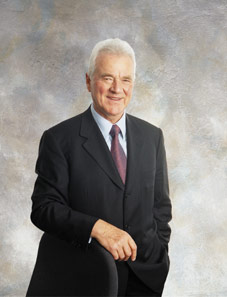
The Canadians versus the Italians in a bid for German Opel?
“There is no assurance that any transaction will result from Magna’s current involvement,” Magna noted in a statement that confirmed it was bidding for up to 25% share of Opel.
Magna’s interest has come under attack in Germany because it does not offer any specific job guarantees or offer any assurance the Opel name will actually live on.
Fiat Spa also wants to buy German-based Opel, although CEO, Sergio Marchionne, is looking for the German Government to help finance a complete takeover of the company by Fiat, which would then create a new publicly-held corporation consisting of the loss-making automotive arms of both entities that would be sold to shareholders.
If that sounds like financial engineering of the kind that brought you sub-prime loans as AAA -rated paper by Standard and Poors, well, it sure seems similar. German government officials are apparently considering this proposition, with one senior minister calling it “intriguing.”
Magna is making a joint bid with OAO Sberbank and OAO GAZ, according to the German news media. Sberbank is Russia’s biggest lender, while GAZ is country’s second-biggest carmaker, and is nominally controlled by billionaire Oleg Deripaska. Up until the financial crisis last fall, Deripaska was considered one of Russia’s wealthiest oligarchs, but he has sold off parts of his holdings in recent months to cover his major financial obligations.
Among the investments Deripaska has liquidated were his 5% interest in General Motors Corporation and a much larger stake in Magna.
Facing bankruptcy in the U.S., GM has been forced to contemplate selling off part of Opel as part of an effort to salvage something from its money-losing European operations, which are consuming billions of dollars a year in cash. GM has requested more than $4 billion in aid for Opel.
The Canadian-based Magna is one of the world’s are the most diversified automotive suppliers as well as a contract assembler, but results have been hit hard as the Global Great Recession continues.
During 2008, Magna operating income was U.S.$328 million, net income was $71 million and diluted earnings per share was $0.62, decreases of $824 million, $592 million and $5.24, respectively, each compared to 2007. Magan posted sales of $23.7 billion for 2008, a decrease of 9% from 2007. This lower sales level was a result of decreases in North American production sales and complete vehicle assembly sales, offset in part by increases in European and Rest of World production sales and tooling, engineering and other sales.
